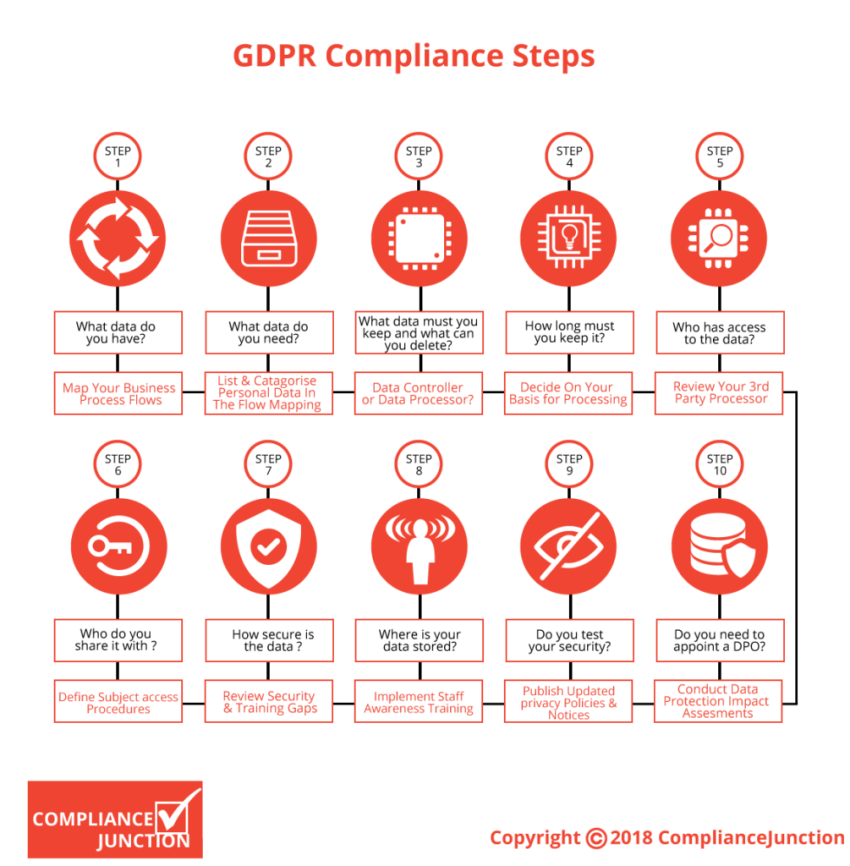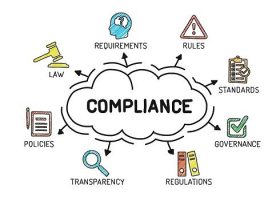GDPR and Data Privacy Compliance: Meeting Standards

The General Data Protection Regulation (GDPR) is a comprehensive data protection law implemented by the European Union (EU) to regulate the processing of personal data. It aims to provide individuals with more control over their personal information while imposing stringent obligations on organizations that handle such data. Compliance with GDPR is crucial for businesses operating within the EU or handling EU citizen data, ensuring the protection of individuals’ privacy rights.
Understanding GDPR
What is GDPR?
GDPR harmonizes data protection regulations across EU member states, providing consistent rules for the processing, storage, and transfer of personal data. It grants individuals various rights, including the right to access, rectify, and erase their data. Organizations must implement effective measures to safeguard personal data and demonstrate compliance.
Key Principles of GDPR
GDPR emphasizes several core principles, including:
Lawfulness, fairness, and transparency
Purpose limitation
Data minimization
Accuracy
Storage limitation
Integrity and confidentiality
Accountability
The Importance of GDPR Compliance
GDPR compliance holds numerous benefits for organizations:
Enhanced Data Security: Compliance helps organizations implement robust security measures, reducing the risk of data breaches and unauthorized access.
Improved Customer Trust: Demonstrating GDPR compliance enhances transparency, fostering trust and confidence among customers, leading to stronger relationships.
Expanded Business Opportunities: Compliance ensures access to the EU market, promoting business growth and eliminating barriers to the free flow of personal data.
Avoidance of Penalties: Non-compliance may lead to severe fines, potentially crippling businesses financially.
Steps to Achieve GDPR Compliance
1. Understand Your Data:
Identify and document the personal data your organization processes, where it is stored, and who has access to it. Conduct thorough data mapping exercises to ensure complete visibility and control.
2. Review Privacy Policies:
Update your privacy policies to align with GDPR requirements. Ensure transparency and communicate clearly with individuals about the purpose of data processing, retention periods, and their rights.
3. Obtain Consent:
Review and adjust your consent mechanisms. Obtain clear and explicit consent from individuals before processing their data, ensuring they understand how their data will be used.
4. Enhance Security Measures:
Implement robust security measures to protect personal data from unauthorized access, accidental loss, or destruction. Encryption, secure storage, and regular audits should be part of your security strategy.
5. Appoint a Data Protection Officer (DPO):
Designate a DPO responsible for overseeing GDPR compliance within your organization. The DPO ensures internal awareness, advises on data protection matters, and acts as a point of contact for supervisory authorities.
Ongoing Compliance and Data Privacy
1. Data Subject Rights:
Understand and respect the rights of individuals, including their right to access, rectify, erase, and restrict the processing of their personal data. Establish appropriate procedures to fulfill these requests.
2. Data Breach Notification:
Implement incident response procedures to detect, investigate, and report any data breaches within 72 hours. Notify relevant authorities and affected individuals promptly.
3. Regular Audits and Assessments:
Conduct periodic assessments and audits to ensure ongoing compliance with GDPR standards. Regularly review and update data protection policies and procedures.
Conclusion
Compliance with GDPR and data privacy standards is not just a legal requirement but also a business necessity. Organizations must implement robust measures to protect personal data and respect individuals’ privacy rights. Adhering to GDPR not only ensures legal compliance but also fosters customer trust, enhances data security, and opens up new business opportunities in the EU market.


